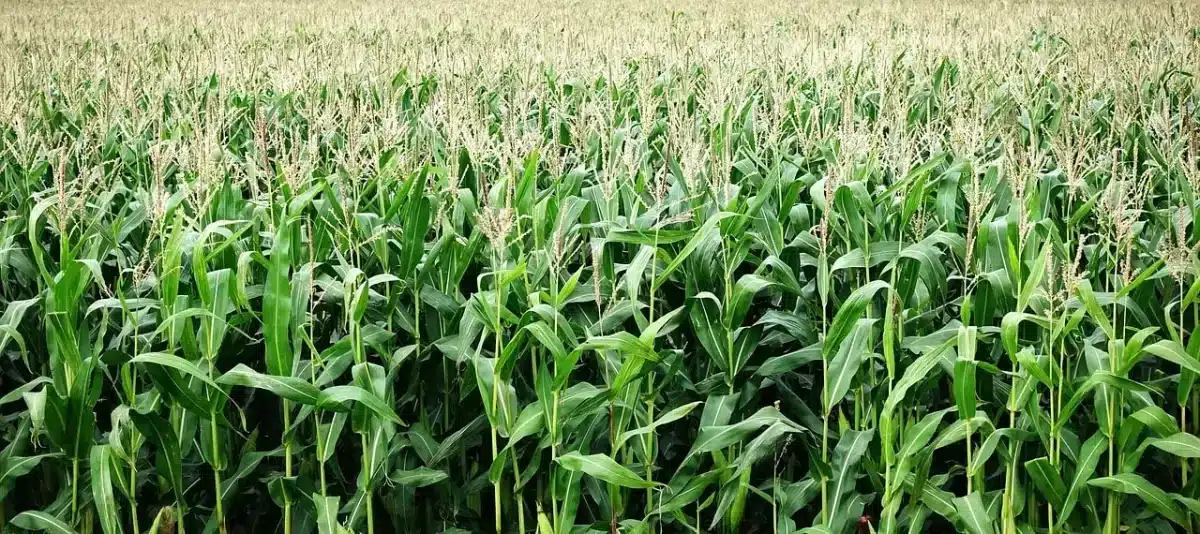Corn is a highly productive and flexible staple crop. When grown sustainably, good-quality corn has the potential to help nourish a growing world population.
Corn yields have increased significantly over the last few decades. According to the United States Department of Agriculture, yields of around 20-30 bushels of corn per acre remained fairly constant until the mid-1900s (one bushed = 25.4kg). In the last 70 years, however, modern industrial corn farming methods have caused yields to skyrocket to 170 bushels (4318kg) or more per acre. At the surface level, a higher yield per acre may sound like good news. But, sadly, there are negative environmental and human health impacts.
Corporate farming practices and unsustainable subsidies are disrupting our economy and environment. This is by no means limited to corn farming, but corn is one of the most prominent examples since the agricultural industry has invested a great deal into maximising corn profits. As a result, there are more farmers growing corn than there are people wanting to buy it, particularly in the USA.
How much is too much?In the US, where corn production is heavily subsidised, corn subsidies totalled $116.6 billion from 1995-2020. A bushel of corn goes for under two dollars. This means that 75 billion cubic feet of corn probably would not have been produced if corporate growers knew they were limited by consumer demand. |
With so much invested in corn production in the USA, agricultural interests have proven unwilling to limit output and allow market prices to dip too low. Instead, “Big Agriculture” has been finding ways for people to consume more and more of their unwanted surplus. One of these ways is through high-fructose corn syrup.
What is high-fructose corn syrup?High-fructose corn syrup (HFCS) is a sweetener made from corn starch. It is commonly used in packaged foods and beverages. |
Over the past decades, HFCS has become affordable and widely available. It is used in a vast array of food products all over the world (South Africa included), from yoghurt to salad dressing. This is despite the fact that excessive HFCS intake has been attributed to many serious health issues, including insulin resistance, obesity, metabolic syndrome, and several others.
The environmental impact of excessive corn production
As we know, a multitude of delicate balances work together in a natural ecosystem. These complex organisms and processes are ignored and being destroyed by our current high-input monoculture model. This reduced diversification leads to an increase in plant and animal diseases, pest problems and weed problems.
The conventional model of high-input agriculture breaks down the self-sustaining recycling characteristic of living systems. These systems thus become increasingly dependent on greater inputs, which cause agro-industry pollution and further breakdown.
World hunger isn’t a result of underproduction; it’s a result of poverty and the maldistribution of food. Rather than ramping up the production of monocultures, we need to be looking at how to solve political and economic problems. Degrading our ecosystems through ecologically unsound agricultural practices only exacerbates these issues by increasing wealth disparity, decreasing social justice, and reducing the productivity of affected lands and waters. As we’ve mentioned, the problem is by no means limited to corn production, and there are serious flaws shared across most large-scale producers.
What’s the solution?
The solution lies in sustainable, regenerative farming. Instead of over-producing certain crops for convenience and profit, farmers need to be incentivised to look for longer-term solutions and methods that benefit both human health and the environment.
Get in touch with the Zylem team to find out more about our sustainable soil health solutions. Contact us on 033 347 2893 or send your enquiry to [email protected].

About the Author: Alex Platt
Alex is Business Development Manager at Zylem. He’s inspired by the potential of regenerative farming and takes a special interest in the technology and products that are moving agriculture in a more sustainable direction.

